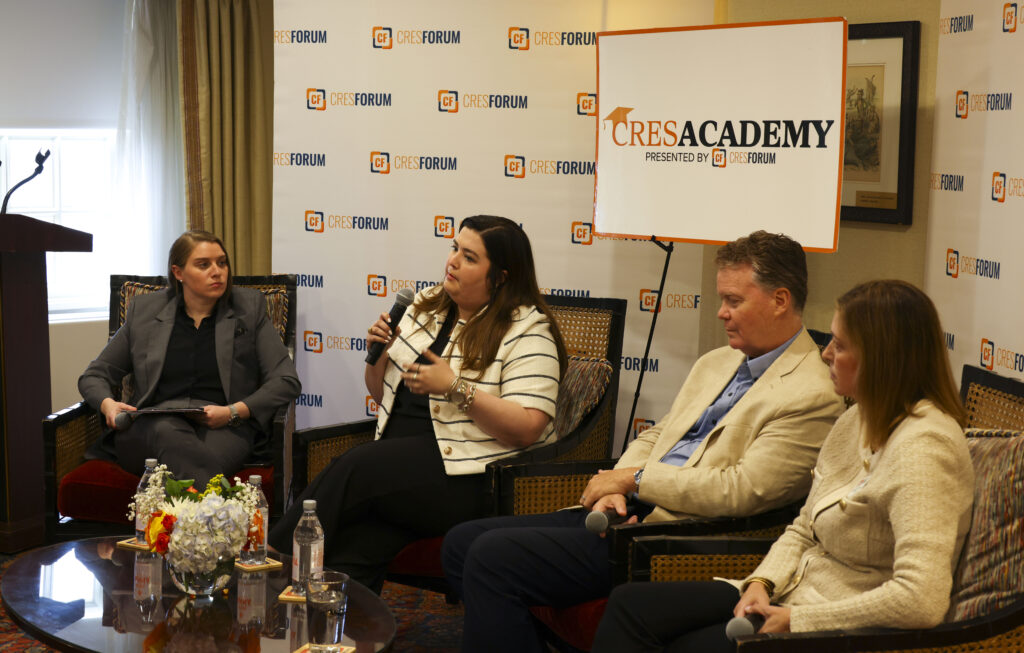Recently, CRES Forum hosted its fifth and final CRES Academy session of the year: “Permitting Reform 101.” The event brought together experts in energy policy, markets and industry to help Hill staff better understand how the permitting process shapes energy deployment and U.S. global competitiveness.

With a packed room of attendees, the speakers explained how streamlining permitting can produce more affordable, reliable clean energy solutions that further our nation’s energy independence. Robert MacGregor, Staff Director for the House Natural Resources Committee’s Subcommittee on Energy and Mineral Resources, provided opening remarks on the work the committee and Congress is doing to update permitting.

The main panel was moderated by CRES Vice President of Policy and Advocacy Christina Baworowsky and featured Rachel Harris, Director of Federal Government Affairs at Invenergy, Kellie Donnelly, Executive Vice President and General Counsel at Lot Sixteen, and Marty Hall, Senior Policy Fellow at CRES Forum. Panelists shared perspectives on challenges with the current process and potential changes that could expedite reviews of projects while maintaining environmental stewardship.
The discussion also highlighted the need for reform in order to meet growing energy demand by strengthening supply chains and increasing domestic production of all forms of energy. Panelists agreed that a byzantine permitting system threatens to hinder investment and undermines our economic and national security.
After remarks concluded, we celebrated our new CRES Academy graduates, or those individuals who attended four of five CRES Academy sessions this year! CRES Academy provides Republican staff with the opportunity to learn about the policies being championed by Republican leadership to address climate change, energy, resilience and conservation issues. Participants have access to senior policy staffers, who are responsible for developing legislation on key energy issues and gain real world context from impacted industries.

As Congress continues discussions on permitting, CRES Forum will remain focused on educating staff and lawmakers about how commonsense improvements in the process can speed up projects, lower costs, create jobs and strengthen America’s energy future all while still protecting our environment.